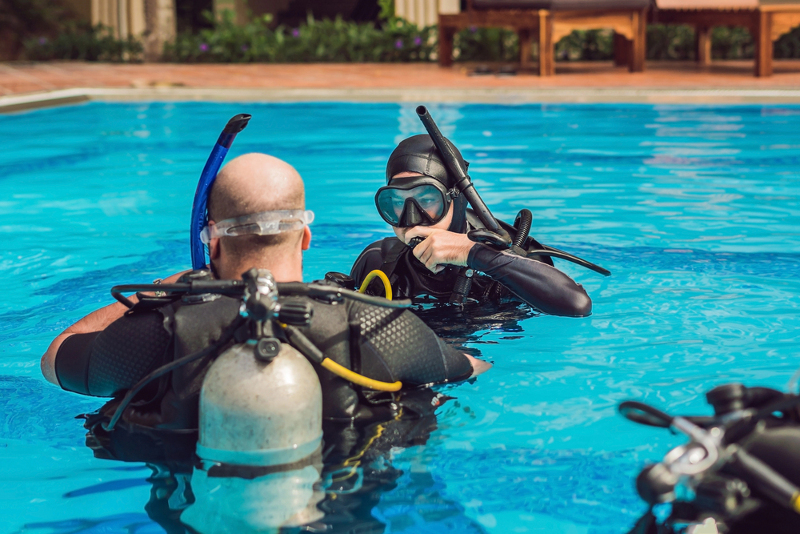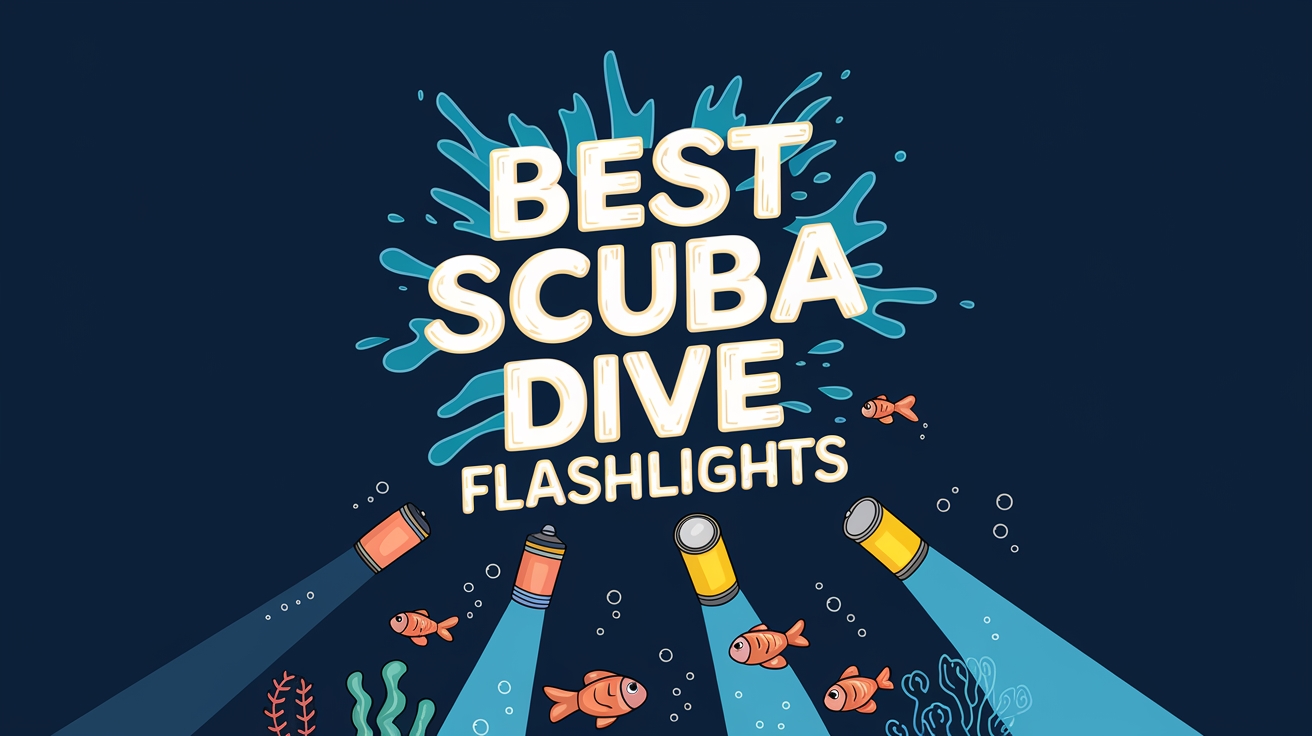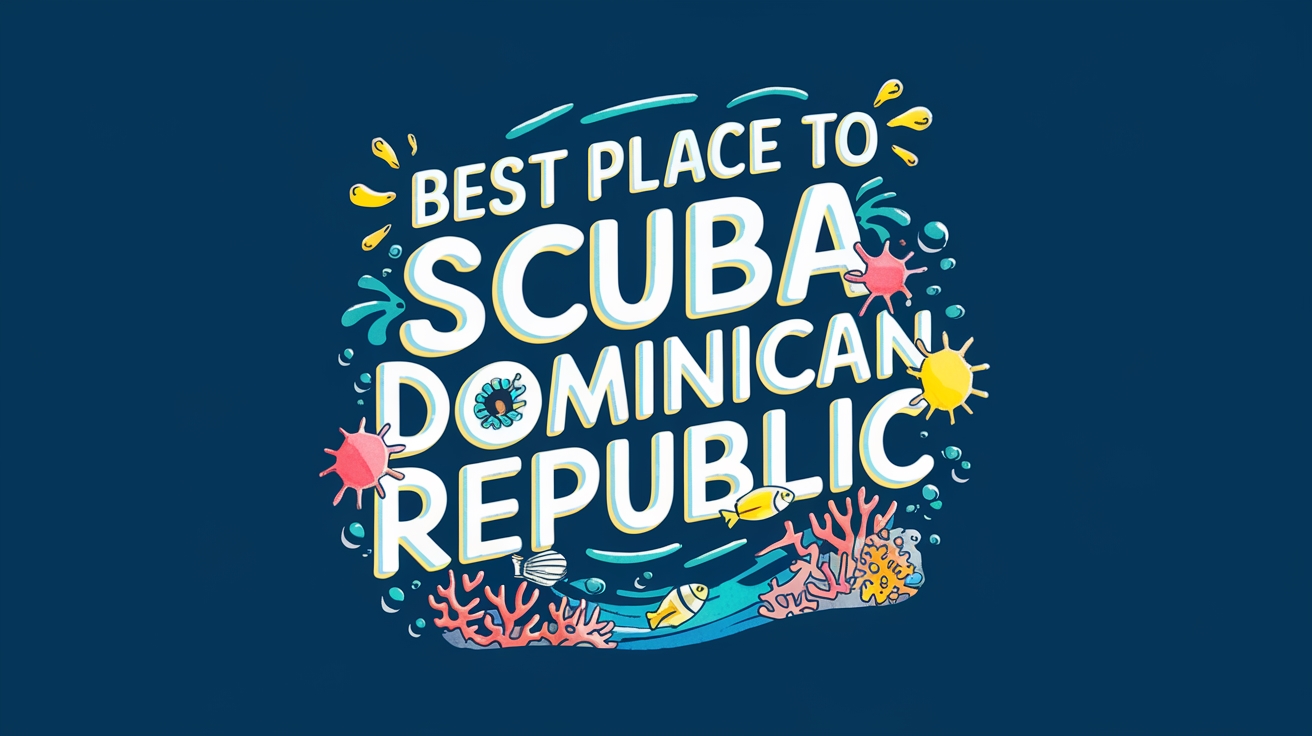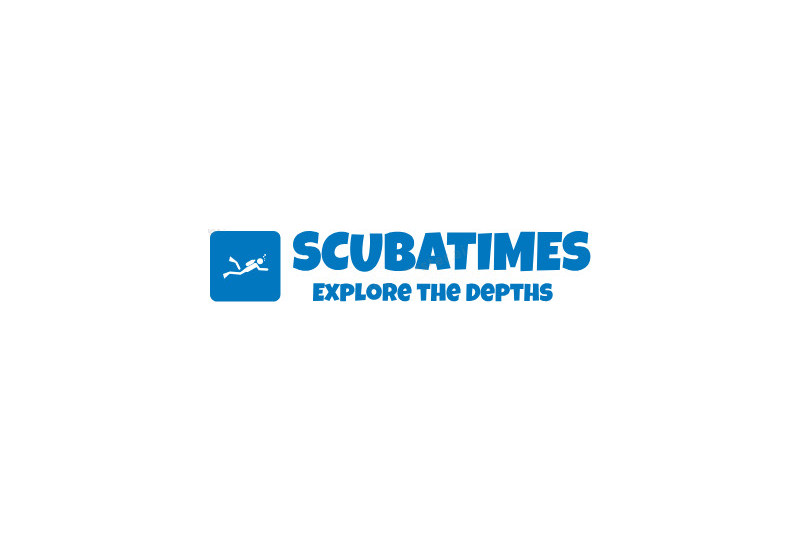Becoming a scuba diving instructor is an appealing career choice that merges a love for underwater activities with professional skill. The journey involves a commitment to progressing through various certification levels, allowing you to turn recreational diving into a job. This path includes mastering essential diving skills and developing effective teaching techniques while adhering to safety protocols. For those looking to make this career change, understanding the necessary requirements and steps is essential for success in this field.
Key Takeaways
To become a scuba dive instructor, follow these steps:
- Start by earning the necessary certifications, beginning with Open Water Diver and advancing to Divemaster before obtaining your instructor certification.
- Log a minimum of 100 dives in various conditions to build your experience.
- Meet physical requirements, including a 400-meter swim test, and ensure you have current first aid, CPR, and AED certifications.
- Enroll in a 5-7 day Instructor Development Course that includes classroom learning, pool training, and open water sessions.
- Obtain professional liability insurance and consider employment at dive shops or resorts, or explore starting your own diving business.
Prerequisites for Dive Instructor Training
Before starting dive instructor training, candidates must meet three important prerequisites. First, they need a valid Divemaster certification or an equivalent from a recognized diving organization, showcasing their proficiency in essential underwater skills and rescue methods. Additionally, candidates must provide evidence of at least 100 logged dives in diverse conditions.
The second requirement is to have current certifications in CPR, First Aid, and Emergency Oxygen Administration. This ensures that instructors are prepared to manage medical emergencies both on land and underwater. These certifications typically require renewal every 12 to 24 months, depending on the standards of the certifying body.

Essential Scuba Certifications Required
Aspiring dive instructors need to secure several key certifications before they can teach others. The process starts with the Open Water Diver certification, followed by the Advanced Open Water Diver, which enhances diving skills in various environments.
Next, candidates must earn the Rescue Diver certification, focusing on emergency response and safety protocols. After these foundational steps, achieving Divemaster status is essential, involving training in dive leadership and group management.
Organizations like the Professional Association of Diving Instructors (PADI) and Scuba Schools International (SSI) require instructors to keep their First Aid and CPR certifications up to date. Additionally, candidates must log at least 100 dives before entering instructor development programs. Specialized certifications in areas such as deep diving, night diving, and enriched air (nitrox) can further enhance an instructor’s qualifications.
Building your Diving Experience
While certifications offer formal qualifications, practical experience is essential for becoming a competent dive instructor. It’s generally advised to log at least 100 dives before seeking instructor certification, although many professionals gain much more.
Aspiring instructors should aim to diversify their diving experiences across various conditions, environments, and types of dives. This includes night dives, deep dives, and drift dives, as well as exploring different water temperatures and visibility levels. Each type of dive not only enhances problem-solving skills but also builds comfort underwater. For those starting out, understanding the appropriate scuba diving depths is important for safety and enjoyment.
Keeping detailed dive logs is important during this stage. These logs should note depth, duration, conditions, and equipment used, serving as a reference for future employers or certification bodies.
To gain experience more quickly, consider working or volunteering at dive shops, joining marine conservation efforts, or participating in local diving clubs. These activities often provide mentorship from experienced divers and exposure to various teaching methods and diving practices. Additionally, learning about equipment upkeep and safety procedures during this time will bolster your skills as a future instructor.
Physical Requirements and Health Standards
Snorkeling instructors must meet certain physical and health standards to ensure their safety and that of their students. Certification organizations require candidates to undergo comprehensive medical evaluations to confirm their ability to manage the physical aspects of regular snorkeling and emergency situations.
The following health and physical standards are important for aspiring snorkeling instructors:
- Good cardiovascular fitness, with the ability to swim 400 meters continuously and tread water for at least 15 minutes
- Normal lung function and a healthy respiratory system, free from chronic conditions that could affect safety underwater
- Adequate hearing and vision, with corrective measures allowed through prescription masks
- Physical strength to lift and carry heavy snorkeling gear, including tanks and safety equipment
- No chronic medical issues that could affect judgment or physical ability underwater
Regular medical check-ups and fitness evaluations are required to keep certification active. Instructors should follow a balanced diet, maintain a regular exercise routine, and get enough rest between snorkeling sessions to support peak performance. Those with specific medical conditions must receive clearance from medical professionals familiar with snorkeling before pursuing instructor certification.
First Aid and Safety Training
Safety knowledge is essential in the underwater instruction field. As a diving instructor, you need to keep your certifications in first aid, CPR, and AED use up to date through recognized organizations like the American Red Cross or DAN (Divers Alert Network). These skills are vital for responding effectively in emergencies.
Instructors must undergo specific rescue diver training, which includes managing underwater situations, performing safe ascents, and applying proper rescue techniques for distressed divers. The training also addresses oxygen delivery, neurological assessments, and dealing with diving-related injuries like decompression sickness. Additionally, instructors are taught to carry out detailed pre-dive safety briefings, equipment inspections, and risk evaluations.
Further training involves scenario exercises that mimic real-life emergencies, from gear failures to health issues. Instructors must show competence in handling accidents, creating emergency plans, and maintaining accurate records. Regular updates to safety procedures and ongoing education ensure instructors stay informed about standard safety practices and new rescue methods.
Instructor Development Course Overview
The Instructor Development Course (IDC) prepares future dive instructors over 5-7 days of focused classroom, pool, and open water training. This program blends theory with hands-on experience, equipping candidates to teach and certify new divers effectively.
The IDC curriculum emphasizes professional teaching skills and advanced diving techniques. Participants learn to manage classroom interactions, conduct in-water training, and navigate various instructional situations.
Key components include:
- Understanding diving principles such as physics, body functions, gear, and environmental considerations
- Enhancing presentation and teaching skills for both classroom and practical sessions
- Gaining experience in confined water training and open water courses
- Learning risk assessment and emergency response protocols relevant to instructor duties
- Mastering evaluation and certification processes for student divers
The course concludes with a pre-assessment resembling the final Instructor Examination (IE), helping candidates pinpoint areas for improvement. This structured program ensures instructors are well-prepared to meet industry standards while prioritizing student safety and effective education.
Teaching Skills and Methods
Teaching effectively as a diving instructor requires mastering specific teaching methods and communication techniques. Instructors need to convey complex information through various channels, including spoken instructions, visual demonstrations, and hands-on support. Adapting teaching styles to accommodate different learning preferences helps ensure that students understand essential safety practices and technical skills.
An important aspect involves breaking down diving concepts into simpler parts, using clear examples and practical applications. Instructors use briefings, debriefings, underwater signals, equipment demonstrations, and practice in controlled settings to reinforce learning. They also need to be skilled at using presentation tools, whiteboards, and multimedia resources to enhance theoretical instruction.
Risk management and assessment are key teaching components. Instructors learn to spot and address potential issues before they escalate, which includes interpreting student body language, maintaining group dynamics, and applying effective intervention techniques. Additionally, they develop skills in giving constructive feedback, managing stressful situations, and fostering a supportive learning environment while adhering to safety standards and maintaining professional boundaries throughout the training process.
Professional Liability and Insurance
Professional liability insurance is essential for diving instructors, offering protection against lawsuits and financial risks tied to their teaching activities. This coverage allows instructors to concentrate on providing quality training while ensuring financial stability in case of incidents or claims. Most diving certification organizations mandate that instructors maintain up-to-date professional liability coverage to remain eligible for teaching.
Key elements of professional liability and insurance for diving instructors include:
- Coverage for injury claims arising from diving accidents or teaching-related incidents
- Protection against property damage claims, including damage to rental gear or training facilities
- Legal defense coverage for claims of negligence or improper instruction
- Options for additional coverage related to advanced diving and specialized courses
- Emergency medical expense coverage for instructors and students during training
When choosing insurance, instructors should assess policy limits, deductibles, and any specific exclusions. Many insurers provide tailored packages for diving professionals, often including benefits like gear coverage and lost wages support during claim investigations. Regular policy reviews ensure that coverage remains suitable as teaching activities change.
Employment Opportunities and Career Paths
Once insured and certified, diving instructors can explore various career paths within the industry. Many start at dive shops or resorts, teaching basic certification courses and guiding certified divers. Some advance to specialized instruction, offering advanced certifications in areas like technical diving, cave exploration, or underwater photography.
The cruise industry often hires dive instructors to lead excursions and manage onboard diving programs, while luxury resorts in tropical locations typically employ full-time diving staff. Environmental organizations and marine research centers seek instructors to assist with scientific diving and conservation efforts. Furthermore, experienced instructors may start their own dive operations, consulting businesses, or specialized training centers.
Career growth opportunities include becoming a course director who trains other instructors, working as a technical diving instructor, or focusing on commercial diving education. Some instructors merge their diving skills with other areas, such as underwater videography, gear maintenance, or hyperbaric chamber operations. Additionally, military and law enforcement agencies may recruit diving instructors for specialized training and underwater tasks.


